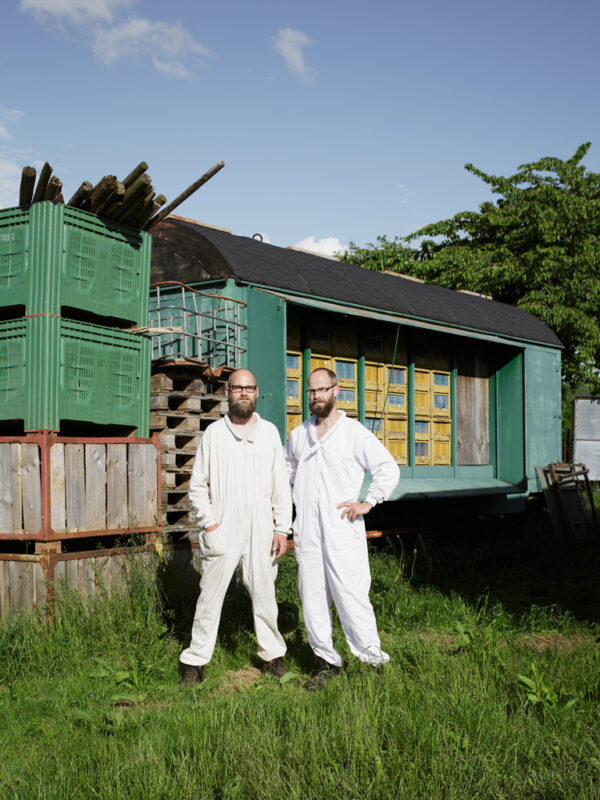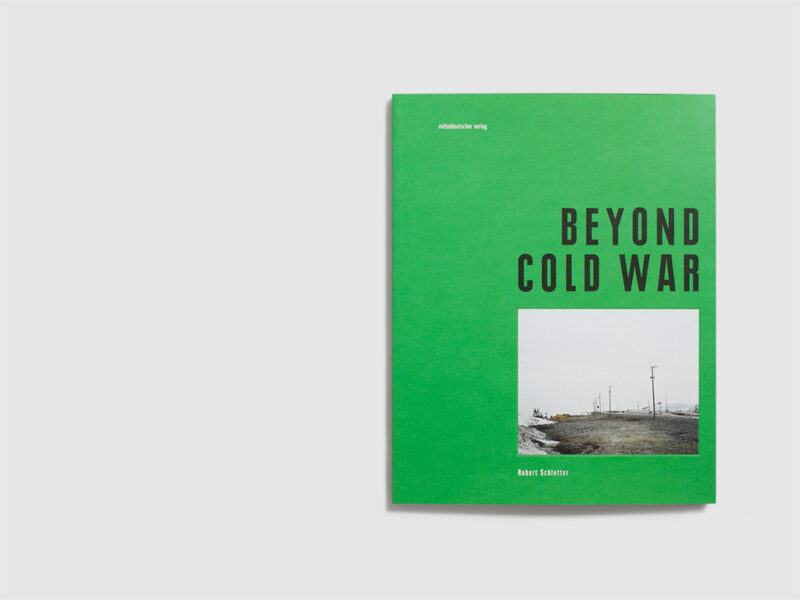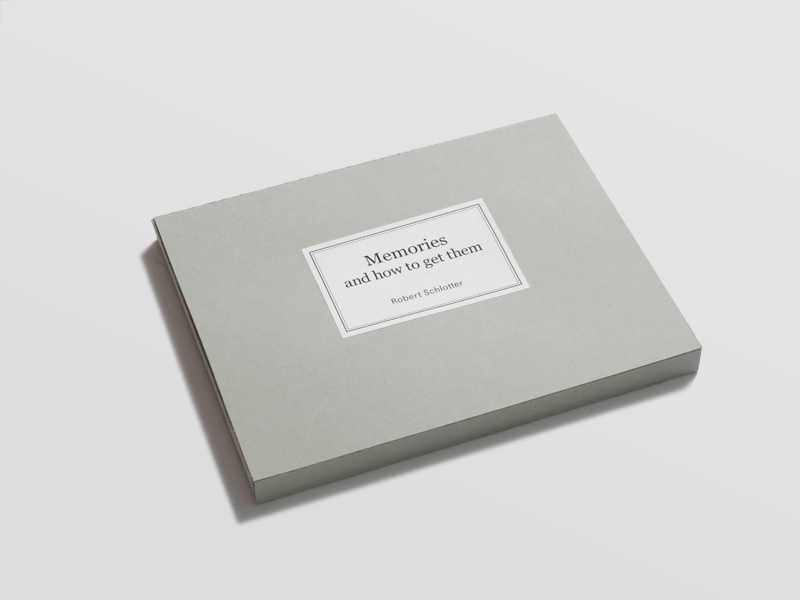Beyond Cold War
Excerpt from the essay «Borderline values» by Andreas Montag
“[…] It was with more mistrust than hate that they confronted one another, spied on one another and listened in on the world of the other. Armed to the teeth with their weaponry, hoarding missiles and nuclear warheads in secret depots while fancifully elaborating upon the minimum amounts of time that a troop of soldiers would have to hold out inside their armoured box until the defenders had built up their front and brought the charging enemy to a halt. It would, of course, be the enemies (who else?) who would advance as aggressors — not those flying their own flag. According to place of residence, self-understanding and propagandistic wind direction, it was ‘the Ruskies’ or ‘American imperialism’ – the eternal adversary.
The latter still continued to manifest itself in the form of the ‘Bonn Ultras’ during the 1970s — a charming term, which has unfortunately gone entirely out of style and which, for members of later generations, might sound more like the hard-core fans of a Rhineland football club. Nonetheless, what was really at stake was class struggle, on the one side, and the defence of Western civilisation, on the other — that is, higher matters for which we were to slaughter one another, if necessary. What sounds like a childish and stupid game of cowboys and Indians was to be universally taken seriously. And it was taken seriously. How much money and how much imagination did it devour? And how many people did it warp and turn evil … […]”
Book review on «Beyond Cold War» by Marc Peschke
“[…] Seine unter anderem an der norwegisch-russischen Grenze, an der ehemaligen innerdeutschen Grenze im Harz, in der Türkei und im Ostseeraum Dänemarks fotografierten Bilder sind von subtiler Suggestionskraft. Was ist hier passiert? Wo sind die Spuren des Konflikts? Oftmals finden wir keine, blicken auf Wälder, Gebirge und Seen, schauen auf sattgrüne Wiesen und sind dennoch beunruhigt. Dem 1981 in Jena geborenen Fotografen gelingt es, uns beim Betrachten der Bilder eine gehörige Portion Unbehagen einzuimpfen. Man fühlt sich beobachtet, ausgespäht, ausgehorcht. Aber da ist ja niemand mehr. Oder?
Einige Häuser stehen in der Landschaft herum. Mal führt ein Pfad über eine Wiese, mal ein Weg durch einen Wald. Doch auch diese Spuren des Menschen machen die Orte nicht zu Schauplätzen der Geschichte. Die Suche nach geheimen Unterständen, nach Bunkern, nach Abhörstationen ist umsonst. Warum? Es ist unser Blick, unsere Suche nach Verwertbarem, die Robert Schlotter interessieren. Jede Reifenspur nehmen wir als Indiz: Ja, genau! Hier ist damals etwas passiert! Könnte sein. Muss aber nicht.
Diese Fotografien entziehen sich: Sie sind nicht leicht lesbar – oder nur auf eine Weise: Diese nüchternen, wenngleich sehr genau komponierten Landschaftsbilder erzählen mehr über den, der sie anblickt, als über sich selbst. Sie machen die Erwartung des Betrachters zum Thema. Sie spiegeln einen erwartungsvollen Blick.”
published in: Kunstbuchanzeiger, March 2015 & Photonews, April 2015
Beyond Cold War is also available at:
malenki.net
Buchhandlung im Haus der Photographie, Deichtorhallen Hamburg
Galerie Bohai, Hannover
Kunsthalle Bielefeld
Museum Marta Herford
Tique Artspace, Antwerp / Belgium


